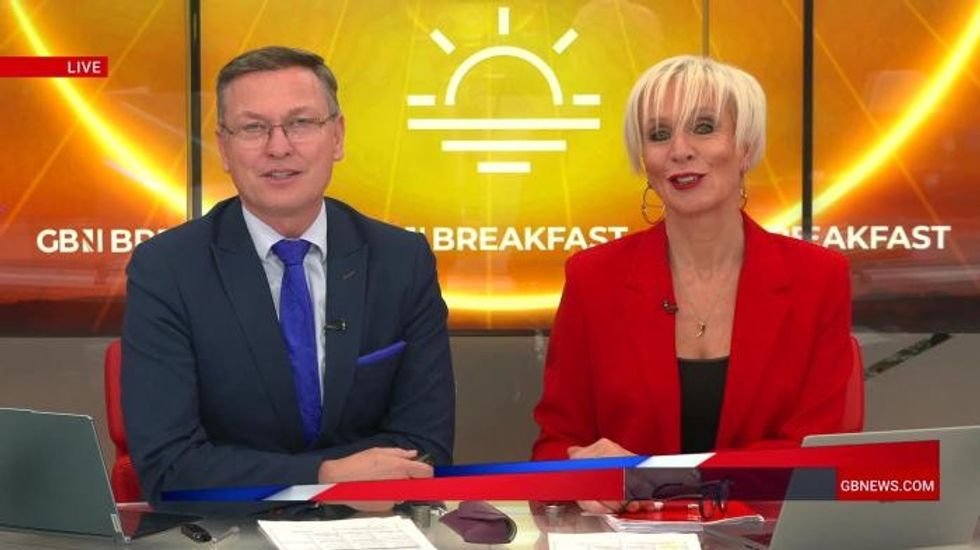
Nearly one million pensioner households could be living in water poverty by the end of this decade if the Government fails to introduce a single social tariff, a new report warns.Research conducted by charity Independent Age reveals a stark increase from the 750,000 pensioner households already struggling with water poverty in 2022/23. This is the term used to describe when households are unable to sufficiently pay their water bill.The report, titled “Looking for a Lifeline”, defines water poverty as households spending more than three per cent of their income after housing costs on water bills. Notably, the report also highlights that people from racially minoritised groups are more likely to experience a cost of living blow when it comes to water costs.These findings come ahead of Ofwat’s final determinations for the 2024 price review, due on December 19. Pensioners are already struggling to pay their energy bills following Ofgem’s recent price cap hike and Chancellor Rachel Reeves’s decision to means-test Winter Fuel Payments.Recent polling shows 66 per cent of older people in England with incomes under £15,000 would struggle to manage a 20 per cent increase in their water bills. The research found that 40 per cent of older people aged 65 and over on low incomes have already taken steps to reduce their water consumption.Among the measures taken in the first half of 2024, 45 per cent of pensioners cut back on using their washing machines. A concerning 44 per cent reduced how often they flushed their toilets. The study revealed 30 per cent of older people used their kettles less frequently.Do you have a money story you’d like to share? Get in touch by emailing money@gbnews.uk.More older households are at risk of water poverty, a shocking report has found GETTY Additionally, 28 per cent of pensioners reported taking fewer showers to save on water costs. These cutbacks highlight the growing financial pressure on older households as they attempt to manage their water bills.Independent Age has proposed four different models for a single social tariff to tackle water poverty across England and Wales. These include a fixed bill reduction, percentage discount, daily block of free water and a bill cap.The charity’s research suggests these models could lift between 292,000 and 578,000 older people out of water poverty. The proposal for a standardised social tariff has received widespread support among older people.Polling conducted in July 2024 showed 73 per cent of older people in England and 72 per cent in Wales backing the initiative. Independent Age is now urging the UK Government to conduct its own research and establish a social tariff.As part of its call to action, the charity shared its aim to end the current “postcode lottery” of financial support for water bills. Details on various water bill support schemes can be found on the Consumer Council for Water (CCW) website.Many water providers provide social tariffs to customers on low incomes who are also in receipt of means-tested support from the Department for Work and Pensions (DWP).Those who do not meet this criteria, but struggle to pay their bills, could negotiate a debt payment plan with their water provide or apply for one of their company’s financial hardship funds; if their is one available.According to the CCW website, households at risk of water poverty should consider a water meter which may assist in helping families bring their costs down by hundreds of pounds.Millions of Britons are set to pay more for their water bills over the years to come GETTYIndependent Age’s chief executive Joanna Elson CBE broke down why around one million pensioners face a heightened cost of living in the months ahead solely from their water bills.She explained: “It’s extremely concerning to see that without urgent action from the UK Government, there could almost be one million older households living in water poverty by 2029/30.””This can’t be allowed to happen. Living in water poverty means cutting down on washing, laundry, flushing the toilet and boiling the kettle. It’s not right that so many older people feel like they have no choice but to make these cutbacks.”Our research shows just how impactful a single social tariff for England and Wales would be, to support people who don’t have enough money to pay their water bills and to end the current postcode lottery. Where you live shouldn’t dictate how much financial support you receive.”GB News has contacted the Department for Energy Security and Net Zero (DESNZ) and Ofwat for comment.